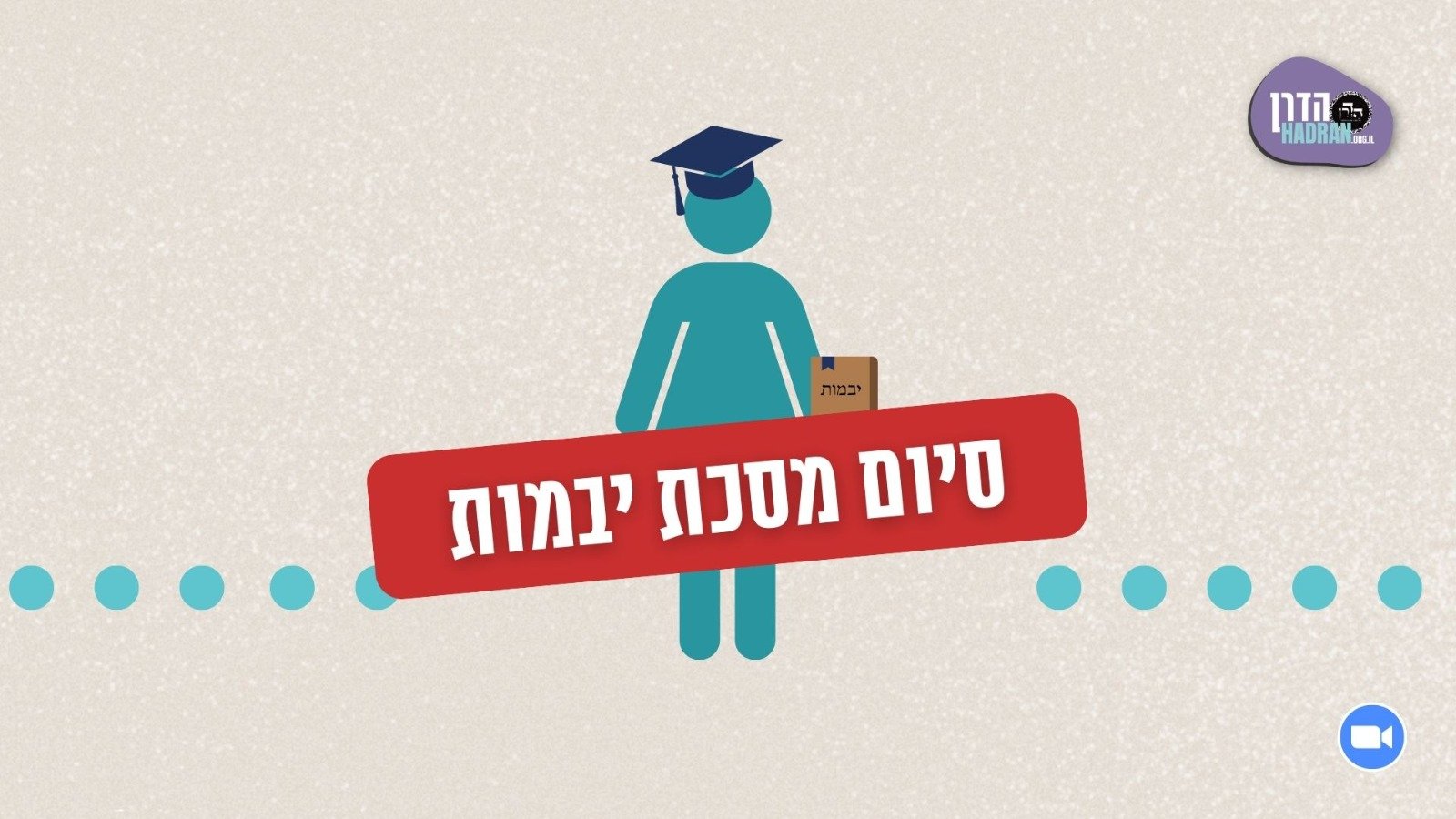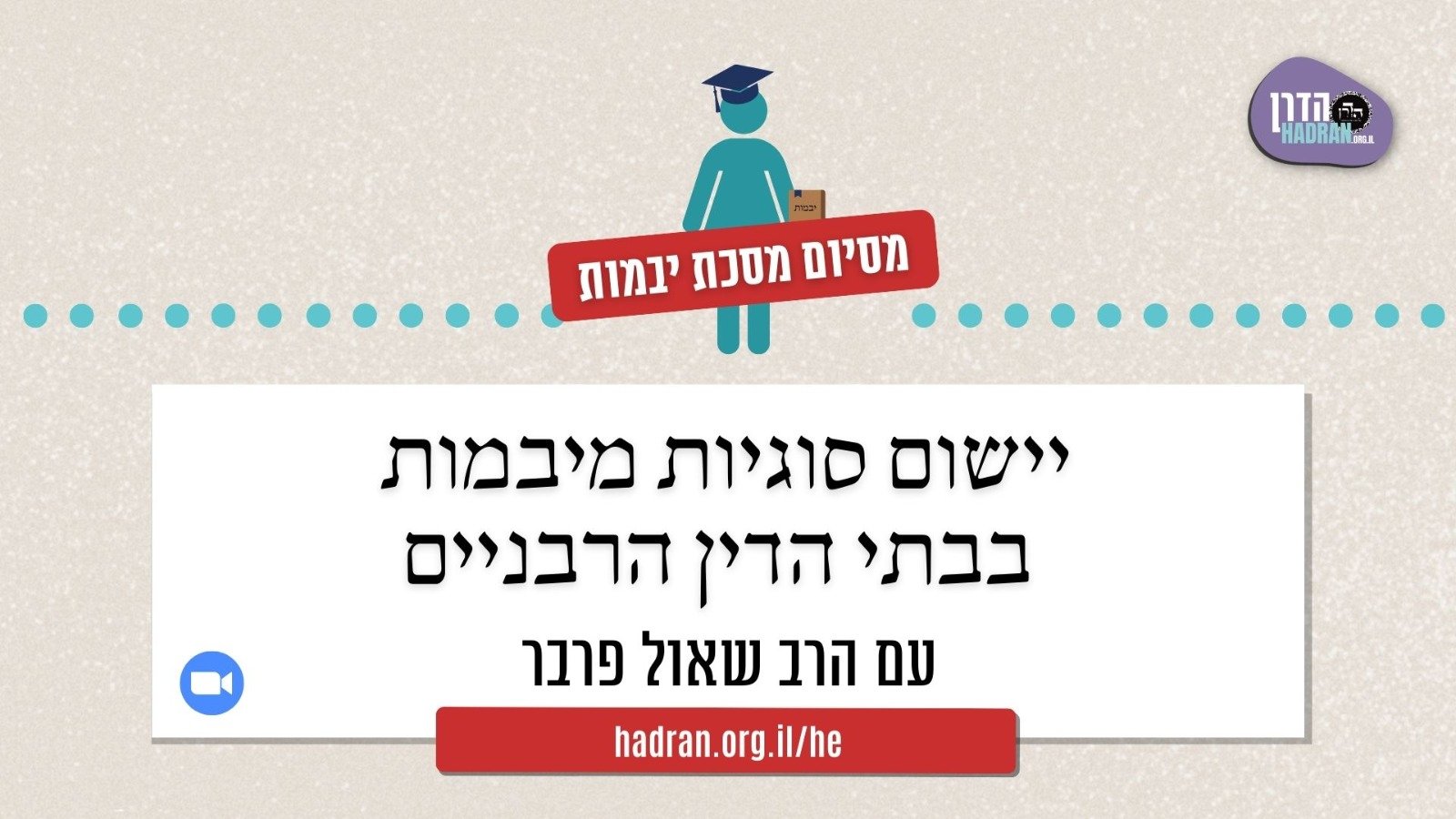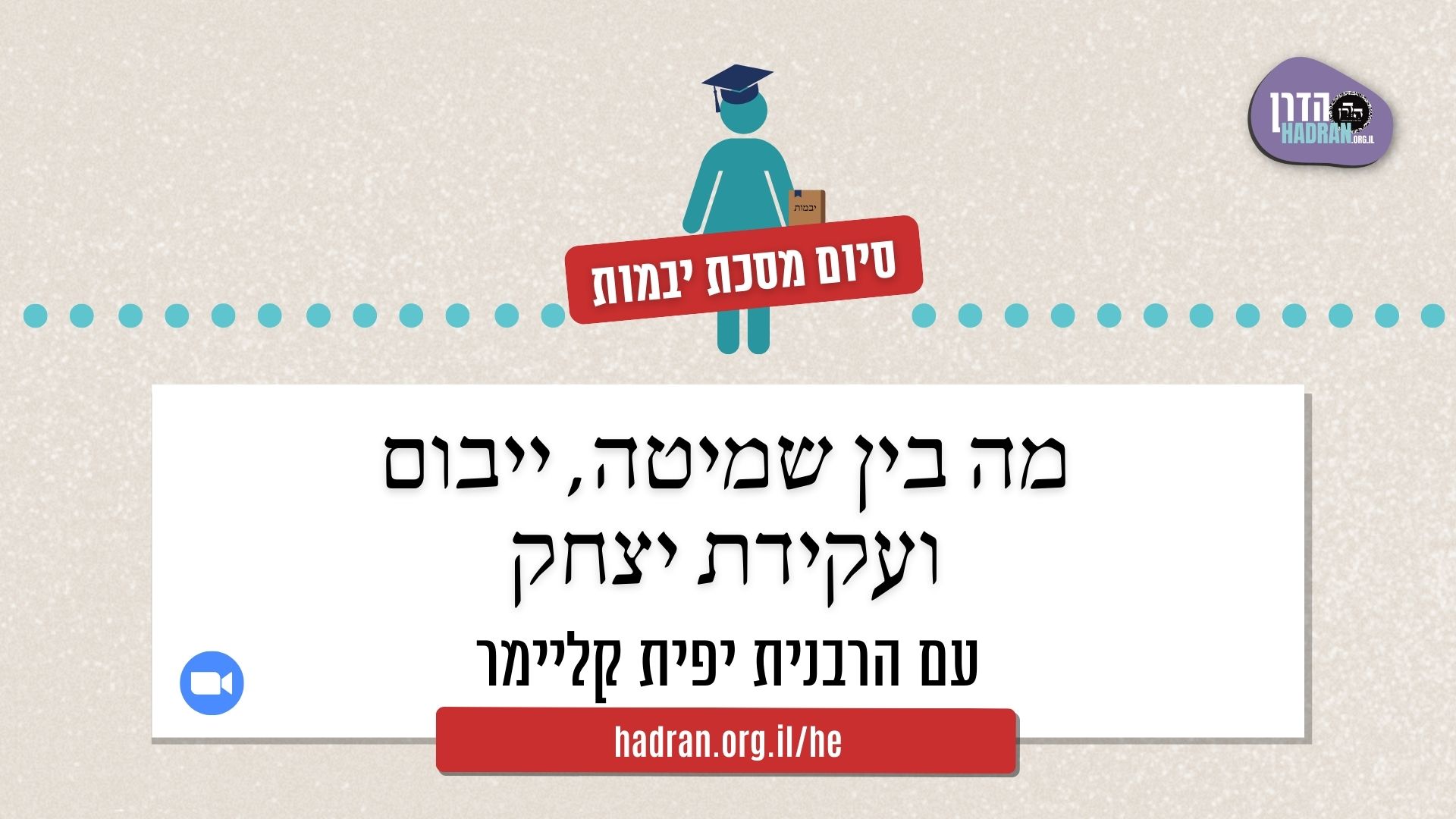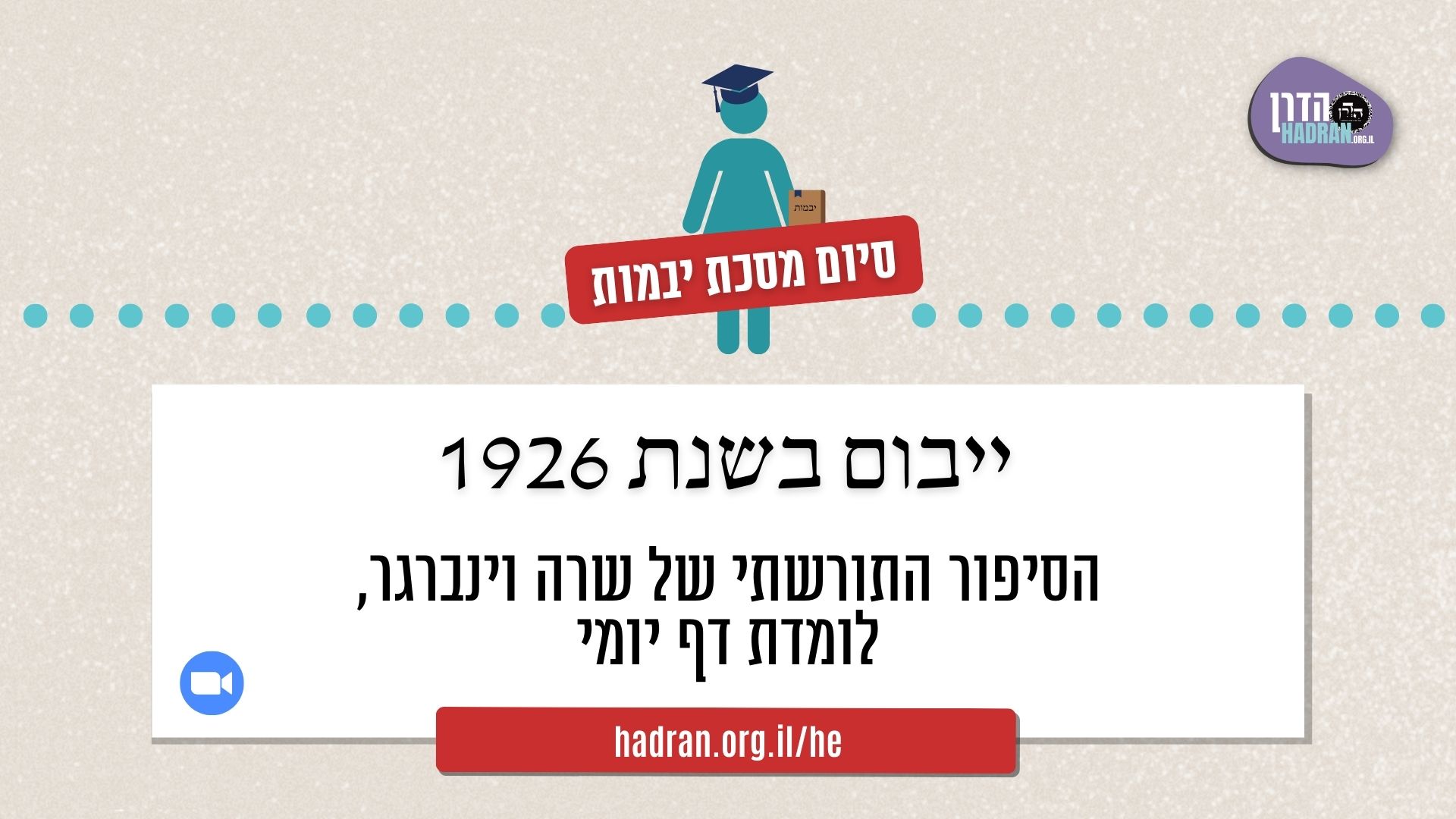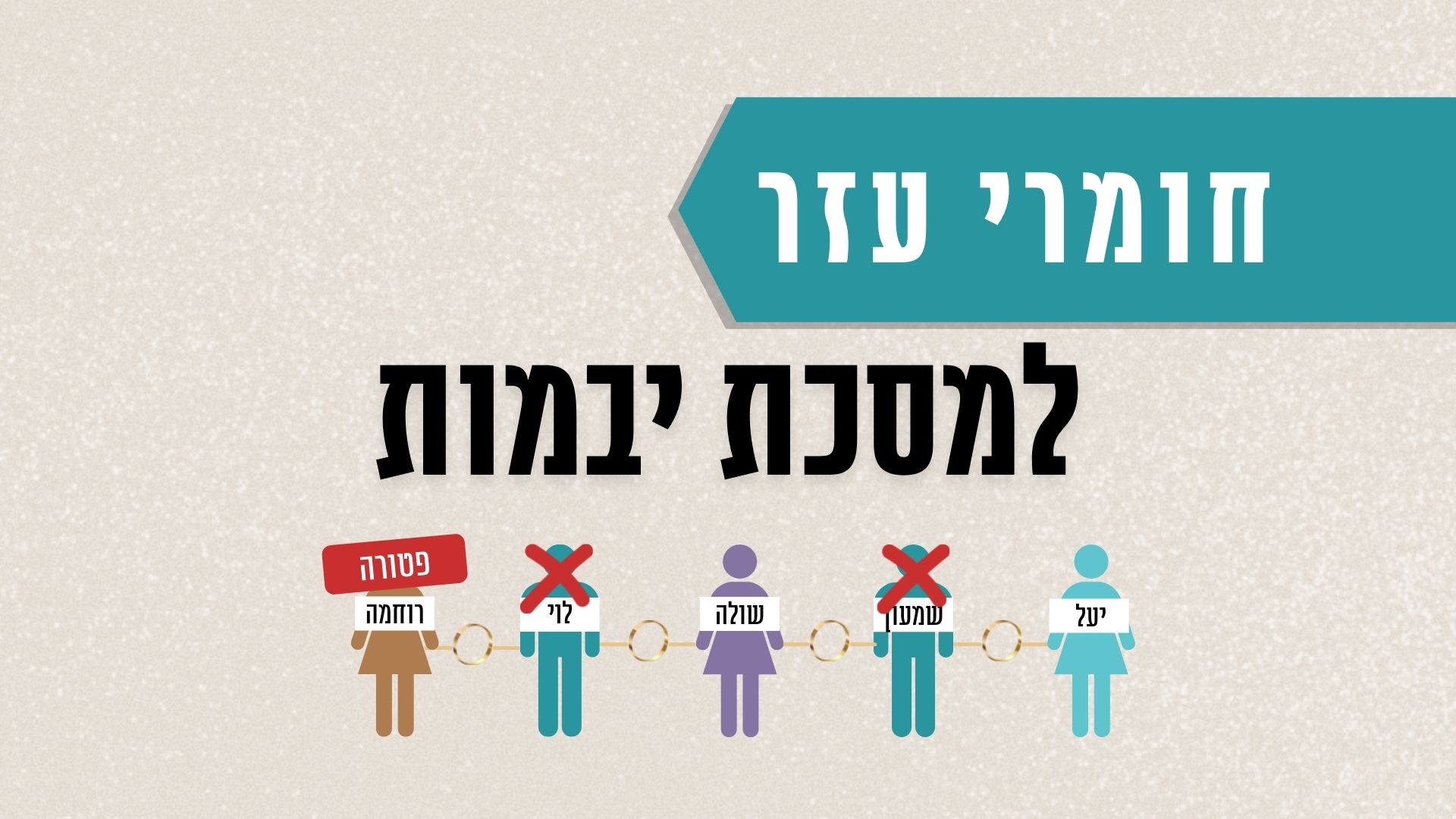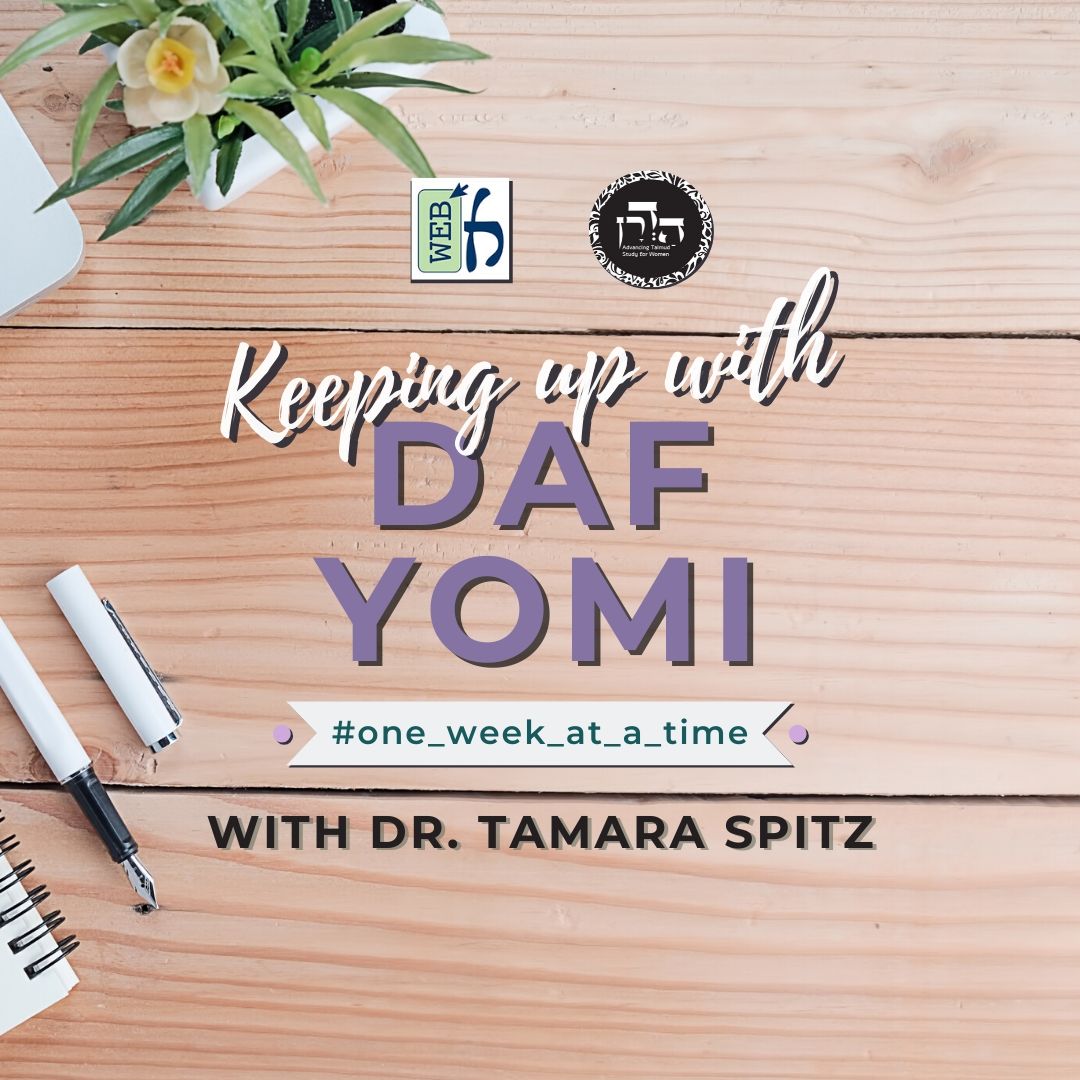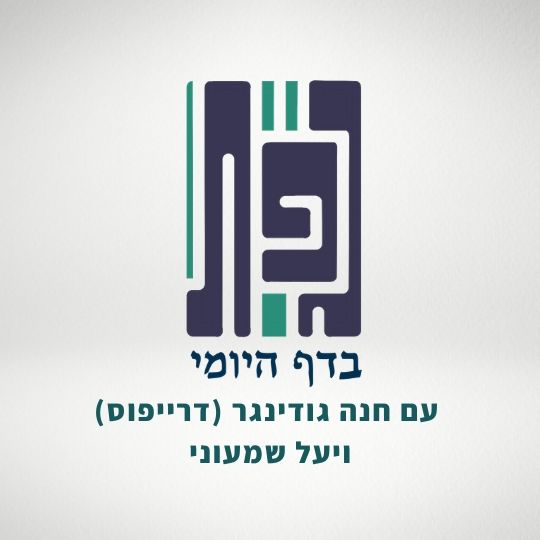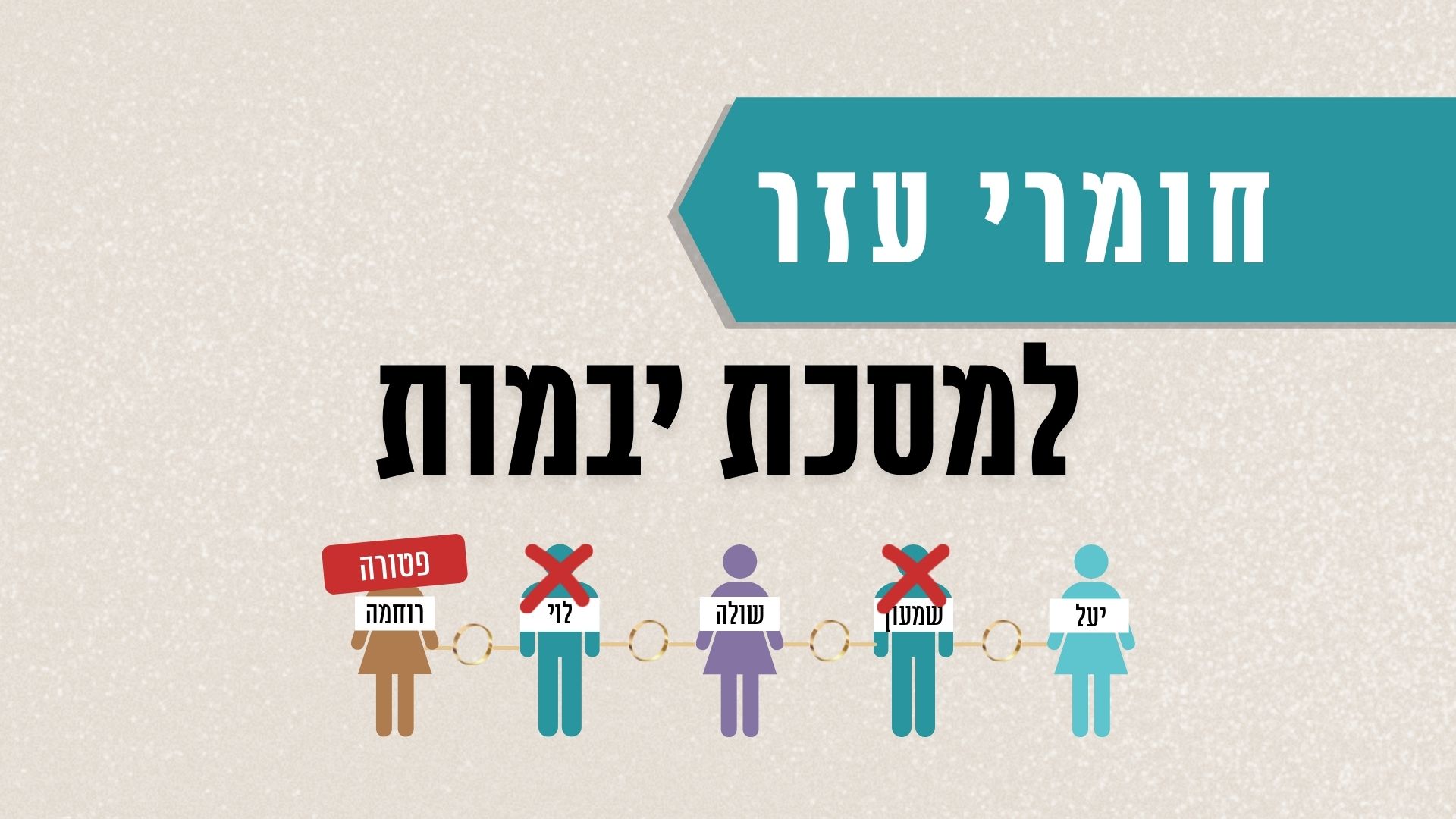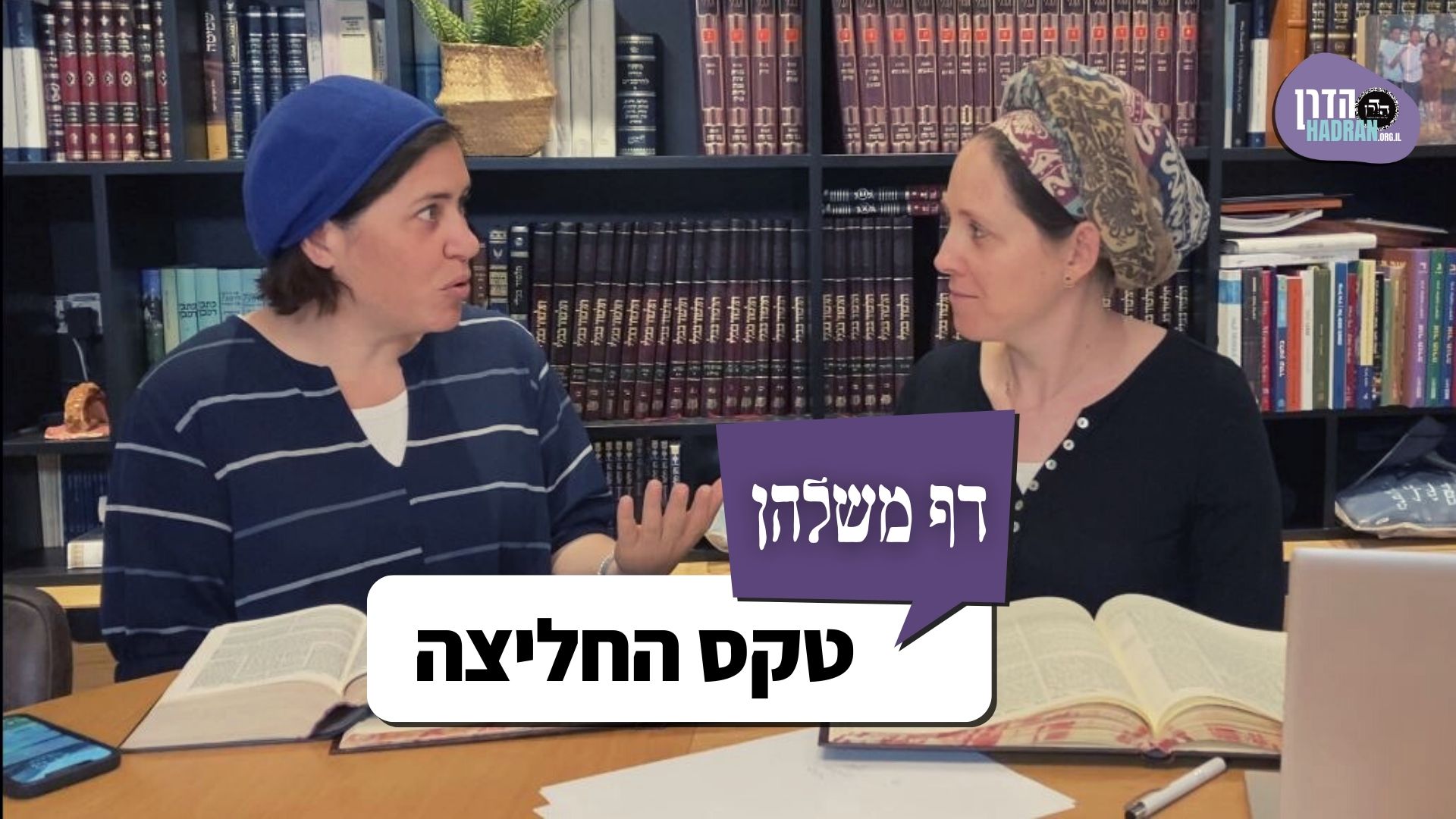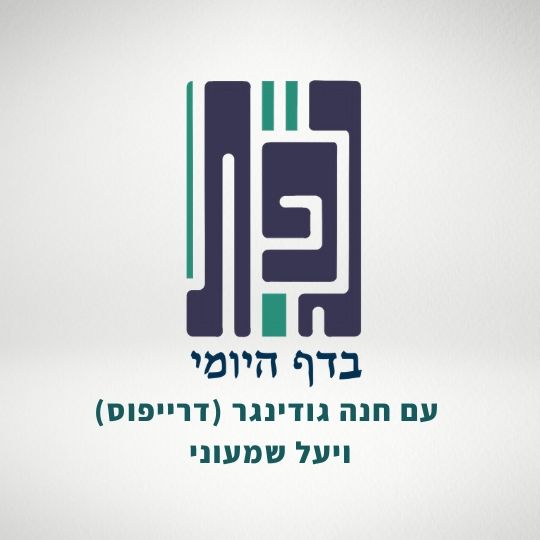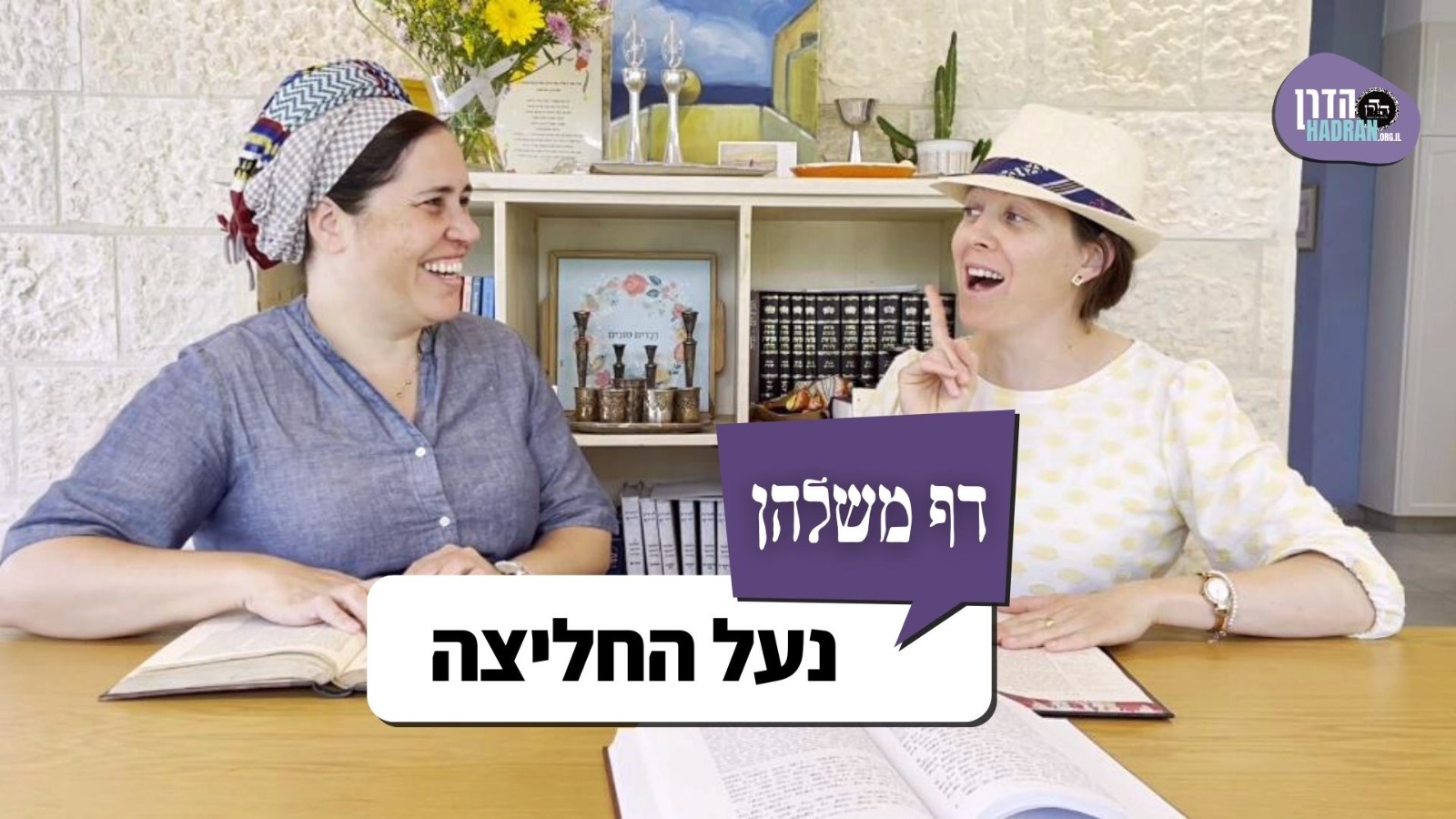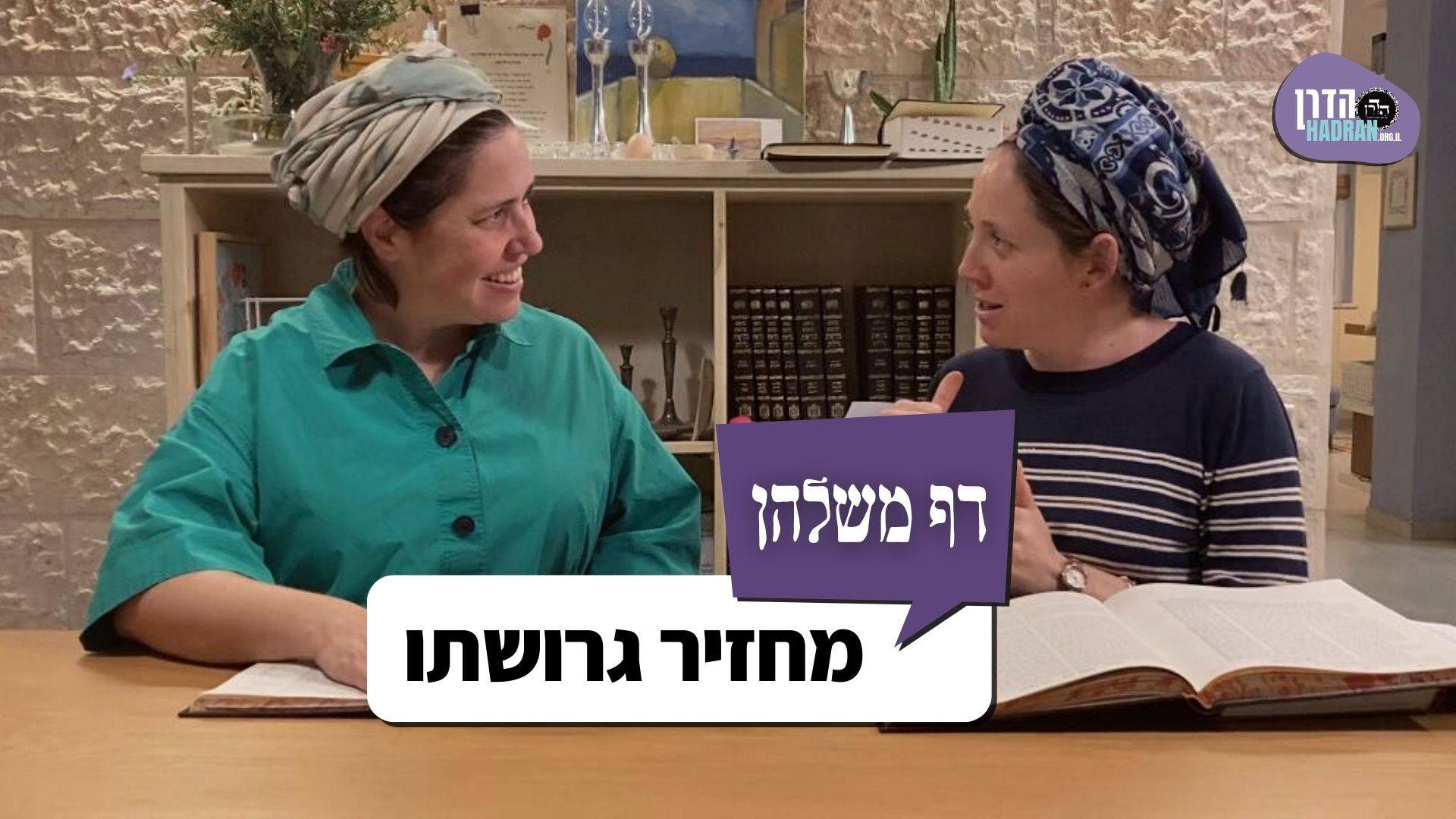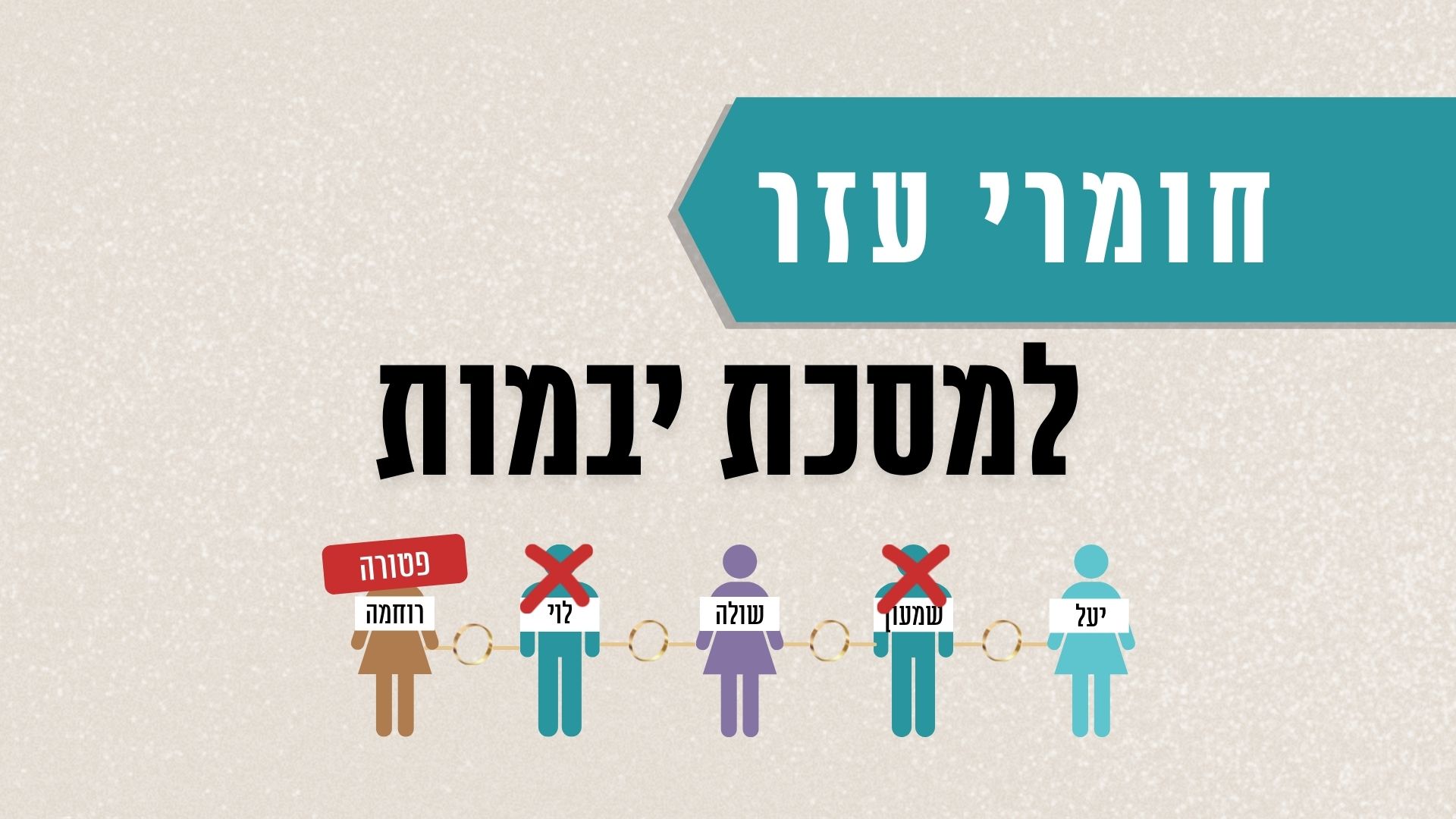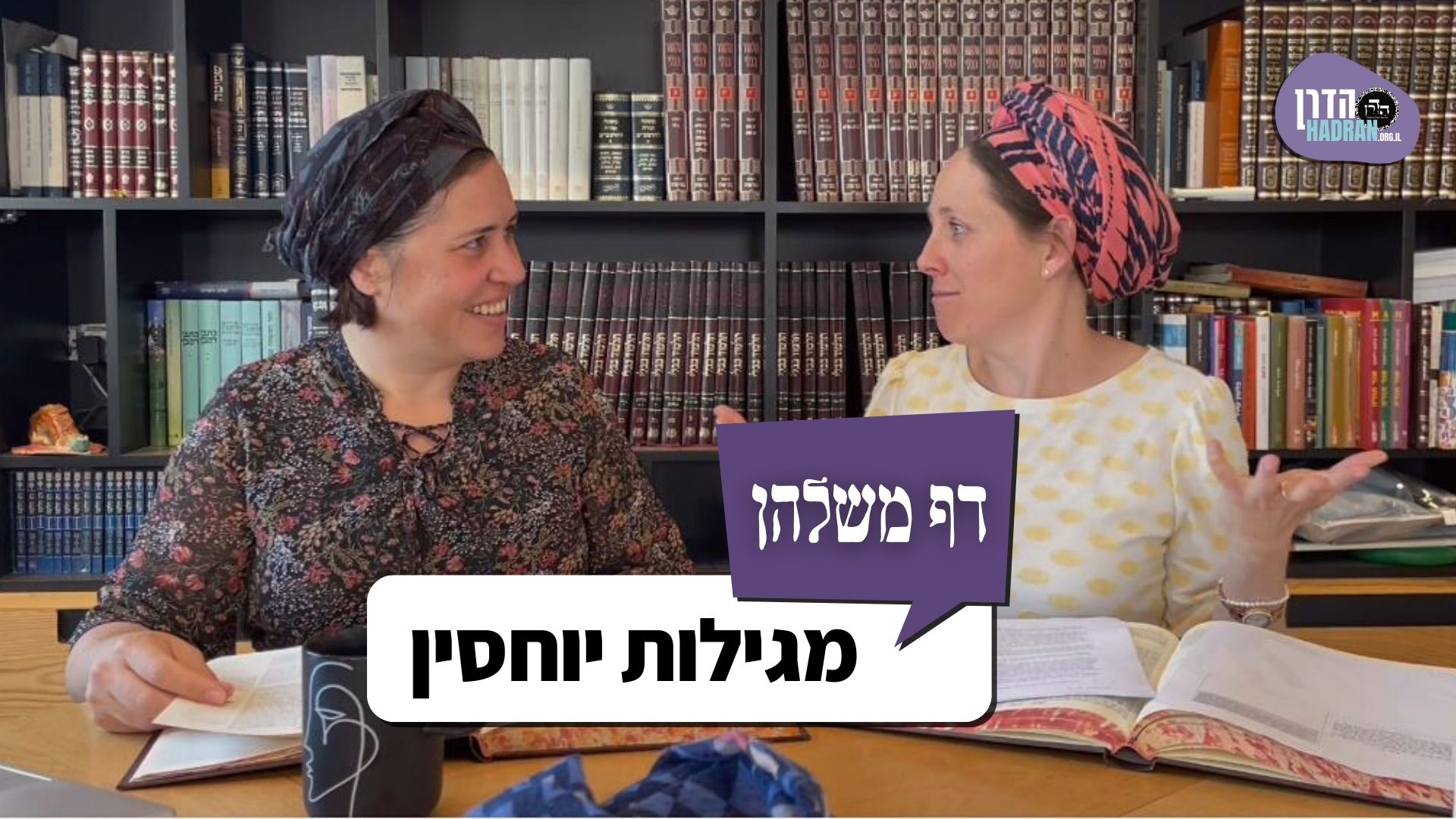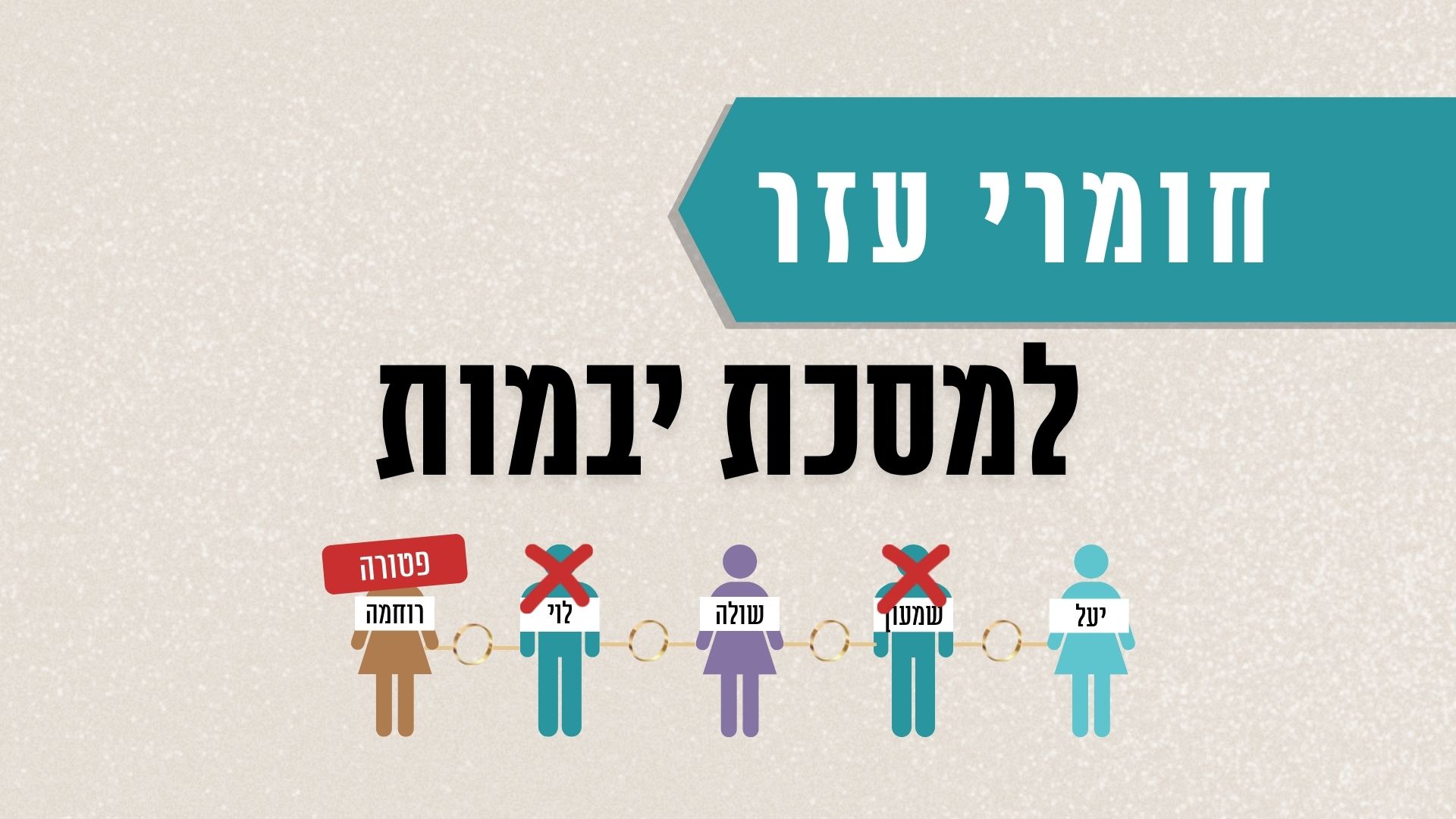יבמות קיז
שֶׁאֵין הָאַחִין נִכְנָסִין לַנַּחֲלָה עַל פִּיהָ!
that the brothers do not come into the inheritance from the deceased brother based on her testimony. Evidently, although this testimony is accepted with regard to forbidden sexual relationships, it is not effective for monetary matters.
אָמְרוּ לָהֶם בֵּית שַׁמַּאי: וַהֲלֹא מִסֵּפֶר כְּתוּבָּה נִלְמוֹד, שֶׁהוּא כּוֹתֵב לָהּ: שֶׁאִם תִּנָּשְׂאִי לְאַחֵר תִּטְּלִי מַה שֶּׁכָּתוּב לִיכִי. וְחָזְרוּ בֵּית הִלֵּל לְהוֹרוֹת כְּדִבְרֵי בֵּית שַׁמַּאי.
Beit Shammai said to them: But we can learn this halakha from the scroll of the marriage contract, as every husband writes for her that: If you marry another man, take what is written for you in this contract. This shows that her right to receive the money of her marriage contract is dependent upon her eligibility to remarry. In this case, as she is deemed credible when she says her husband died and she may marry again, she is likewise entitled to the money of the marriage contract. And Beit Hillel again retracted their opinion, and decided to teach in accordance with the opinion of Beit Shammai.
גְּמָ׳ אָמַר רַב חִסְדָּא: נִתְיַיבְּמָה — יְבָמָהּ נִכְנָס לַנַּחֲלָה עַל פִּיהָ. הֵם דָּרְשׁוּ מִדְרַשׁ כְּתוּבָּה — אָנוּ לֹא נִדְרוֹשׁ מִדְרַשׁ תּוֹרָה?!
GEMARA: Rav Ḥisda said: If the woman entered into levirate marriage based upon her own testimony, her yavam comes into the inheritance of the property of his dead brother based on her testimony. He adds: If Beit Shammai taught their halakha that she is entitled to her money, by interpreting homiletically the language of a marriage contract, will we not teach by interpreting homiletically the Torah itself?
״יָקוּם עַל שֵׁם אָחִיו״ אָמַר רַחֲמָנָא, וַהֲרֵי קָם.
Rav Ḥisda explains: The Merciful One states in the Torah: “He shall succeed in the name of his dead brother” (Deuteronomy 25:6), which is interpreted by the Sages as referring to the right of inheritance of the brother who consummates the levirate marriage. And this man did succeed with respect to the marital relationship, as he consummated the levirate marriage based on the testimony of his yevama that her husband died. Consequently, he takes the place of his brother with respect to his inheritance as well.
אָמַר רַב נַחְמָן: בָּאת לְבֵית דִּין וְאָמְרָה ״מֵת בַּעְלִי, הַתִּירוּנִי לְהִנָּשֵׂא״ — מַתִּירִין אוֹתָהּ לְהִנָּשֵׂא וְנוֹתְנִין לָהּ כְּתוּבָּתָהּ. ״תְּנוּ לִי כְּתוּבָּתִי״ — אַף לְהִנָּשֵׂא אֵין מַתִּירִין אוֹתָהּ. מַאי טַעְמָא — אַדַּעְתָּא דִכְתוּבָּה אֲתַאי.
§ Rav Naḥman said: A woman came to the court and said: My husband died; permit me to marry. The halakha is that after investigating the matter, they permit her to marry, and also give her her marriage contract. However, if she came and said: Give me my marriage contract, they do not even permit her to marry. What is the reason? Since she came with the money of the marriage contract in mind, she is suspected of lying, and her testimony is rejected.
אִיבַּעְיָא לְהוּ: ״הַתִּירוּנִי לְהִנָּשֵׂא וּתְנוּ לִי כְּתוּבָּתִי״, מַהוּ? כֵּיוָן דְּאָמְרָה כְּתוּבְּתַהּ — אַדַּעְתָּא דִכְתוּבָּה אֲתַאי, אוֹ דִלְמָא: כֹּל מִילֵּי דְּאִית לֵיהּ לְאִינִישׁ אָמַר לְהוּ לְבֵי דִינָא. [וְאִם תִּמְצֵי לוֹמַר כֹּל מִילֵּי דְּאִית לֵיהּ לְאִינִישׁ, אָמַר לְהוּ לְבֵי דִינָא] ״תְּנוּ לִי כְּתוּבָּתִי וְהַתִּירוּנִי לְהִנָּשֵׂא״, מַהוּ?
However, the following dilemma was raised before the scholars. If she came and said: Permit me to marry and give me my marriage contract, what is the halakha? Since she mentioned the money from her marriage contract, this shows that she came with the marriage contract in mind. Or perhaps every matter a person has in his favor he will say to the court, even if it is not of particular importance. And if you say that the ruling in this case is in accordance with the principle: Every matter a person has in his favor he will say to the court, then in a case where she said: Give me my marriage contract and permit me to marry, what is the halakha?
הָכָא וַדַּאי אַדַּעְתָּא דִכְתוּבָּה אֲתַאי, אוֹ דִּלְמָא: הוֹאִיל דְּלָא יָדְעָה בְּמַאי מִשְׁתַּרְיָא?! תֵּיקוּ.
The Gemara explains the sides of the dilemma: Here she certainly came with the marriage contract in mind, as she mentioned it first. Or perhaps she said it in this manner since she does not know what will set her free. In other words, she might have thought that taking the money guaranteed by her marriage contract is part of the process that enables her to remarry, but this does not prove that she is focused on the money. The Gemara states that the question shall stand unresolved.
מַתְנִי׳ הַכֹּל נֶאֱמָנִין לְהַעִידָהּ, חוּץ מֵחֲמוֹתָהּ, וּבַת חֲמוֹתָהּ, וְצָרָתָהּ, וִיבִמְתָּהּ, וּבַת בַּעֲלָהּ.
MISHNA: All are deemed credible when they come to give testimony with regard to the death of a woman’s husband, apart from her mother-in-law, the daughter of her mother-in-law, her rival wife, the wife of her yavam, and her husband’s daughter, her stepdaughter. The reason is that these women are likely to hate her and will lie to her detriment.
מָה בֵּין גֵּט לְמִיתָה — שֶׁהַכְּתָב מוֹכִיחַ.
The mishna explains: In the case of a divorce all people, including these women, may bring her bill of divorce and testify that it was written appropriately. What, then, is the difference between a bill of divorce and death? The mishna answers: The difference is that in the case of a bill of divorce the writing proves the accuracy of the testimony, i.e., her testimony is supported by the text of the document itself, whereas with regard to the death of her husband there is no proof apart from the statement of the woman herself.
גְּמָ׳ אִיבַּעְיָא לְהוּ: בַּת חָמִיהָ מַהוּ? טַעְמָא דְּבַת חֲמוֹתָהּ — מִשּׁוּם דְּאִיכָּא אִימָּא דְּסָנְיָא לַהּ, הִיא נָמֵי סָנְיָא לַהּ, וְהָכָא לֵיכָּא אִימָּא דְּסָנְיָא לַהּ.
GEMARA: A dilemma was raised before the scholars: With regard to the daughter of her father-in-law, who is not the daughter of her mother-in-law, what is the halakha? May she testify to the death of the woman’s husband, or is she also under suspicion? The Gemara explains the sides of the dilemma: The reason that the daughter of her mother-in-law is suspected of lying is because she has a mother who hates her daughter-in-law, and therefore the daughter also hates her. But here, there is no mother who hates her, as she is not the mother-in-law’s daughter, and therefore she should be deemed credible.
אוֹ דִלְמָא טַעְמָא דְּבַת חֲמוֹתָהּ, דְּאָמְרָה: ״קָאָכְלָה לְגִירְסָנָא דְאִימָּא״, הָכָא נָמֵי קָאָמְרָה: ״אָכְלָה לְגִירְסָנָא דְּבֵי נָשַׁאי״.
Or perhaps the reason that the daughter of her mother-in-law hates her is that she says: She eats the food [girsena] that my mother prepares. Here too, in the case of the daughter of her father-in-law, she also says: She eats the food of my father’s house.
תָּא שְׁמַע: הַכֹּל נֶאֱמָנִין לְהַעִידָהּ חוּץ מֵחָמֵשׁ נָשִׁים. וְאִם אִיתָא, שֵׁית הָוְיָין! דִּלְמָא טַעְמָא דְּבַת חֲמוֹתָהּ, דְּאָמְרָה: ״קָאָכְלָה לְגִירְסָנָא דְּבֵי נָשַׁאי״, לָא שְׁנָא בַּת חֲמוֹתָהּ וְלָא שְׁנָא בַּת חָמִיהָ.
The Gemara suggests: Come and hear a resolution from the following baraita: All are deemed credible when they come to testify with regard to her except for five women. And if it is so, that the daughter of her father-in-law is also disqualified, there are actually six women. The Gemara rejects this: This is no proof, as perhaps the reason that the daughter of her mother-in-law is disqualified from testifying is that she says: She eats the food of my father’s house, and if so, the halakha is no different with regard to her mother-in-law’s daughter and no different with regard to her father-in-law’s daughter. Since the two women are disqualified for the same reason the Sages did not list these as two separate cases.
וְהָאֲנַן תְּנַן: חוּץ מִשֶּׁבַע נָשִׁים! הָהִיא, רַבִּי יְהוּדָה הִיא. דִּתְנַן: רַבִּי יְהוּדָה מוֹסִיף אַף אֵשֶׁת אָב וְהַכַּלָּה.
The Gemara raises a contradiction from another source. But isn’t it taught in a baraita: Apart from seven women who are not trustworthy. Apparently that tanna added the daughter of her father-in-law as a separate category. The Gemara answers: That ruling is in accordance with the opinion of Rabbi Yehuda. As it was taught in a baraita: Rabbi Yehuda adds also a father’s wife, who hates her stepdaughter, and a daughter-in-law, who hates her mother-in-law.
אָמְרוּ לוֹ: אֵשֶׁת אָב הֲרֵי הִיא בִּכְלַל בַּת הַבַּעַל, כַּלָּה הֲרֵי בִּכְלַל חֲמוֹתָהּ.
The Rabbis said to Rabbi Yehuda: A father’s wife is included in the category of the husband’s daughter, while a daughter-in-law is included in the category of her mother-in-law. In other words, just as a mother-in-law is suspicious of her daughter-in-law, a daughter-in-law is equally suspicious of her mother-in-law, and they need not be listed separately.
וְרַבִּי יְהוּדָה, בִּשְׁלָמָא חֲמוֹתָהּ סָנְיָא לַהּ לְכַלָּה, דְּאָמְרָה: קָאָכְלָה לְגִירְסָנַי. אֶלָּא כַּלָּה מַאי טַעְמָא סָנְיָא לַחֲמוֹתָהּ? בִּשְׁלָמָא בַּת הַבַּעַל דְּסָנְיָא לְאֵשֶׁת הָאָב, דְּאָמְרָה: קָאָכְלָה לְגִירְסָנֵי דְאֵם. אֶלָּא אֵשֶׁת הָאָב, מַאי טַעְמָא סָנְיָא לְבַת הַבַּעַל?
And Rabbi Yehuda, who counts them separately, can answer: Granted that her mother-in-law hates the daughter-in-law, as she says: She eats the food I prepare; but a daughter-in-law, what is the reason that she hates her mother-in-law? Similarly, granted the husband’s daughter, that she hates her father’s wife, as she says: This woman eats the food that my mother prepared. However, the father’s wife, what is the reason that she hates her husband’s daughter?
אֶלָּא מַאי מוֹסִיף תַּרְתֵּי? אֶלָּא: כַּלָּה מַאי טַעְמָא סָנְיָא לַחֲמוֹתָהּ — דִּמְגַלָּה לִבְנָהּ כֹּל דְּעָבְדָה, אֵשֶׁת אָב נָמֵי סָנְיָא לְבַת הַבַּעַל — דִּמְגַלָּה לְאָבִיהָ כֹּל דְּעָבְדָה.
The Gemara asks: Rather, what is the reason that Rabbi Yehuda adds these two? Rather, his logic is: In the case of a daughter-in-law, what is the reason that she hates her mother-in-law? Because she reveals to her son everything his wife does. And likewise a father’s wife also hates the husband’s daughter, because she reveals to her father everything she does. In each case the reason for this hatred is different from the reason for the hatred of the other woman, the mother-in-law or the husband’s daughter, and therefore they belong in a separate category.
וְרַבָּנַן: ״כַּמַּיִם הַפָּנִים לַפָּנִים כֵּן לֵב הָאָדָם לָאָדָם״. וְרַבִּי יְהוּדָה: הָהִיא בְּדִבְרֵי תוֹרָה כְּתִיב.
And the Rabbis, who say that the reasons for the hatred are the same and therefore count only five disqualified women, how do they respond to this argument? They cite the verse: “As in water face answers to face, so the heart of man to man” (Proverbs 27:19). That is, if one person hates another, the feeling soon becomes mutual. Here too, there is no need for a separate reason in order that the hatred be reciprocated. The Gemara asks: And Rabbi Yehuda, why doesn’t he rely on this verse? Rabbi Yehuda would retort: That verse was written about matters of Torah. In other words, it means that the more one studies Torah, the more Torah he understands.
אָמַר רַב אַחָא בַּר עַוְיָא, בָּעוּ בְּמַעְרְבָא: חֲמוֹתָהּ הַבָּאָה לְאַחַר מִיכֵּן מַהוּ? מִי מַסְּקָה אַדַּעְתַּהּ דְּמָיֵת בַּעַל וְנָפְלָה קַמֵּי יָבָם וְסָנְיָא לַהּ, אוֹ לָא?
§ Rav Aḥa bar Avya says: They raise a dilemma in the West, i.e., Eretz Yisrael. With regard to her mother-in-law who comes afterward, what is the halakha? This refers to the mother of the husband’s brother, but not her husband’s mother, i.e., the wife’s future mother-in-law if the wife enters into levirate marriage. Can this woman testify with regard to the future wife of her son? The Gemara clarifies: Does it enter her mind that if this woman’s husband died, the widow will happen before the yavam, her son, for levirate marriage, and as the widow, when she then married her son, would eat her food she hates her already, or not?
תָּא שְׁמַע, אָמְרָה: ״מֵת בַּעְלִי וְאַחַר כָּךְ מֵת חָמִי״ — תִּנָּשֵׂא וְתִטּוֹל כְּתוּבָּה, וַחֲמוֹתָהּ אֲסוּרָה. מַאי טַעְמָא חֲמוֹתָהּ אֲסוּרָה? לָאו מִשּׁוּם דְּאָמְרִינַן לָא בַּעְלַהּ מִיית וְלָא חֲמוּהָ מִיית, וְהָא דְּקָאָמְרָה הָכִי — לְקַלְקוֹלַאּ לַחֲמוֹתָהּ הוּא דְּקָמִיכַּוְּונָא,
Come and hear a resolution to this dilemma. If she said: My husband died and afterward my father-in-law died, she may marry and take her money from the marriage contract, and her mother-in-law is prohibited to remarry; she is not deemed credible to testify for her mother-in-law, as already stated. The Gemara clarifies: What is the reason that her mother-in-law is prohibited to remarry? Is it not because we say: Perhaps her husband did not really die, and she is still her mother-in-law, and her father-in-law did not die either, and the reason that she says this statement is that she intends to ruin her mother-in-law?
סָבְרָה: לְבָתַר שַׁעְתָּא לָא תֵּיתֵי (תִּצְטַעֲרַן).
The Gemara elaborates. She reasons: Later, when the husbands arrive, she will not come back and trouble me, because if the mother-in-law relies on this testimony and remarries she will no longer be able to return to her original husband, and she will be out of her daughter-in-law’s life. This shows that there is a concern that a daughter-in-law might lie in order to prevent future family relationships from coming into being. Similarly, a woman should be suspected of lying with regard to her future daughter-in-law.
דִּלְמָא שָׁאנֵי הָתָם, דִּרְגִישׁ לַהּ צַעֲרָא.
The Gemara rejects this suggestion. Perhaps it is different there, as the daughter-in-law has already felt oppressed by her mother-in-law. In other words, she is suspected of lying because she had previous dealings with that woman, whereas in the case of a future mother-in-law, with whom she had no previous dealings, there is no such concern. Consequently, the dilemma cannot be resolved from this case.
מַתְנִי׳ עֵד אוֹמֵר ״מֵת״, וְנִשֵּׂאת, וּבָא אֶחָד וְאָמַר ״לֹא מֵת״ — הֲרֵי זוֹ לֹא תֵּצֵא. עֵד אוֹמֵר ״מֵת״, וּשְׁנַיִם אוֹמְרִים ״לֹא מֵת״ — אַף עַל פִּי שֶׁנִּשֵּׂאת, תֵּצֵא. שְׁנַיִם אוֹמְרִים ״מֵת״, וְעֵד אוֹמֵר ״לֹא מֵת״ — אַף עַל פִּי שֶׁלֹּא נִשֵּׂאת, תִּנָּשֵׂא.
MISHNA: If one witness says: The man died, and the wife married based on this testimony, and one other witness came and said: He did not die, she need not leave her new husband due to this testimony. However, if one witness comes and says: The husband died, and two witnesses say: He did not die, then even though she married based on the first witness she must leave her new husband. If two witnesses say: He died, and one witness says: He did not die, the testimony of the two witnesses is accepted, and even though she did not yet marry, she may marry.
גְּמָ׳ טַעְמָא דְּנִשֵּׂאת, הָא לֹא נִשֵּׂאת — לֹא תִּנָּשֵׂא. וְהָאָמַר עוּלָּא: כׇּל מָקוֹם שֶׁהֶאֱמִינָה תּוֹרָה עֵד אֶחָד — הֲרֵי כָּאן שְׁנַיִם, וְאֵין דְּבָרָיו שֶׁל אֶחָד בִּמְקוֹם שְׁנַיִם.
GEMARA: The Gemara infers: The reason in the case of one witness contradicted by another witness is that she already married; however, if she did not yet marry and a second witness comes in the meantime and contradicts the statement of the first one, she may not marry. The Gemara asks: But didn’t Ulla say: Wherever you find that the Torah relies on one witness, his testimony is considered complete proof, as though there are two witnesses present here? If so, the witness who comes and testifies to the opposite is only one witness, and the statement of one witness has no standing in a place where it is contradicted by two witnesses. Why, then, may she not remarry, even ab initio?
הָכִי קָאָמַר: עֵד אֶחָד אוֹמֵר ״מֵת״, וְהִתִּירוּהָ לְהִנָּשֵׂא, וּבָא אֶחָד וְאָמַר ״לֹא מֵת״ — לֹא תֵּצֵא מֵהֶיתֵּירָהּ הָרִאשׁוֹן.
The Gemara answers that this is what the mishna said: If one witness says: He died, and they permitted her to marry based on his testimony, and one other witness later came and said: He did not die, she does not leave her initial, permitted state, i.e., the permission she was granted to remarry is still in force, and she may marry ab initio.
עֵד אוֹמֵר ״מֵת״ — פְּשִׁיטָא, דְּאֵין דְּבָרָיו שֶׁל אֶחָד בִּמְקוֹם שְׁנַיִם! לָא צְרִיכָא, בִּפְסוּלֵי עֵדוּת, וְכִדְרַבִּי נְחֶמְיָה.
§ The mishna taught that if one witness says: He died, and two come and say: He did not die, she must leave her new husband. The Gemara asks: This is obvious, as the statement of one witness has no standing in a place where it is contradicted by two witnesses. The Gemara answers: No, it is necessary in a case of people disqualified from giving testimony. In other words, the mishna is referring to two people who are generally disqualified from serving as witnesses. In the case of a missing husband, however, their testimony is accepted in contradiction of the first, qualified, witness. And this is in accordance with the opinion of Rabbi Neḥemya.
דְּתַנְיָא, רַבִּי נְחֶמְיָה אוֹמֵר: כׇּל מָקוֹם שֶׁהֶאֱמִינָה תּוֹרָה עֵד אֶחָד — הַלֵּךְ אַחַר רוֹב דֵּעוֹת, וְעָשׂוּ שְׁתֵּי נָשִׁים בְּאִישׁ אֶחָד כִּשְׁנֵי אֲנָשִׁים בְּאִישׁ אֶחָד.
As it is taught in a baraita that Rabbi Neḥemya says: Wherever you find that the Torah relies on one witness, follow the majority of opinions, even if they are disqualified. And the Sages established the testimony of two women against one man in this case like the testimony of two men against one man, i.e., the testimony of the two witnesses negates the earlier testimony of a single witness. The mishna is teaching that even if the first witness was qualified to give testimony, his account is negated by the statements of the two disqualified witnesses who contradicted him.
וְאִיבָּעֵית אֵימָא: כֹּל הֵיכָא דַּאֲתָא עֵד אֶחָד כָּשֵׁר מֵעִיקָּרָא — אֲפִילּוּ מֵאָה נָשִׁים כְּעֵד אֶחָד דָּמְיָין. אֶלָּא כְּגוֹן דַּאֲתַאי אִשָּׁה מֵעִיקָּרָא.
And if you wish, say: Anywhere that a qualified witness came initially and testified that he died, even if one hundred women came and contradicted his account, they are considered like one witness, and cannot negate his testimony. However, here it is speaking of a case where a woman came initially and they relied on her testimony to release the wife, and afterward two other women came and contradicted her.
וְתָרְצַהּ לִדְרַבִּי נְחֶמְיָה הָכִי, רַבִּי נְחֶמְיָה אוֹמֵר: כׇּל מָקוֹם שֶׁהֶאֱמִינָה תּוֹרָה עֵד אֶחָד — הַלֵּךְ אַחַר רוֹב דֵּעוֹת, וְעָשׂוּ שְׁתֵּי נָשִׁים בְּאִשָּׁה אַחַת כִּשְׁנֵי אֲנָשִׁים בְּאִישׁ אֶחָד. אֲבָל שְׁתֵּי נָשִׁים בְּאִישׁ אֶחָד — כְּפַלְגָא וּפַלְגָא דָּמֵי.
The Gemara explains: And you can explain the ruling in accordance with the opinion of Rabbi Neḥemya as follows: Rabbi Neḥemya says: Wherever you find that the Torah relies on one witness, e.g., in testimony concerning a woman’s missing husband, follow the majority of opinions, and they established two women against one woman like two men against one man. However, in a case involving two women against one man, the latter of whom is a qualified witness, this is like half against half, i.e., they are equal. The testimony of two women has no advantage over that of one male witness, who is considered like two witnesses in testimony concerning a missing husband.
שְׁנַיִם אוֹמְרִים ״מֵת״ וְכוּ׳. מַאי קָמַשְׁמַע לַן? בִּפְסוּלֵי עֵדוּת, וְכִדְרַבִּי נְחֶמְיָה, דְּאָזֵיל בָּתַר רוֹב דֵּעוֹת? הַיְינוּ הָךְ!
§ The mishna taught: If two witnesses say: He died, and one witness says: He did not die, even if she did not yet marry, she may marry. The Gemara asks: What is the mishna teaching us? If you say it is referring to people disqualified from giving testimony, and this is in accordance with the opinion of Rabbi Neḥemya, who follows the majority of opinions, then this case is identical to that previous case.
מַהוּ דְּתֵימָא: כִּי אָזְלִינַן בָּתַר רוֹב דֵּעוֹת — לְחוּמְרָא, אֲבָל לְקוּלָּא — לָא, קָא מַשְׁמַע לַן.
The Gemara answers. This case is also necessary, lest you say that when we follow the majority of opinions, this is only when it leads to a stringency, but when this principle would lead to a leniency, to permit her to marry based on the majority of opinions, we do not follow the majority opinion. Therefore, the mishna teaches us that there is no difference in this regard, as the majority of opinions is accepted whether this leads to a lenient or a stringent outcome.
מַתְנִי׳ אַחַת אוֹמֶרֶת ״מֵת״ וְאַחַת אוֹמֶרֶת ״לֹא מֵת״. זוֹ שֶׁאוֹמֶרֶת ״מֵת״ — תִּנָּשֵׂא וְתִטּוֹל כְּתוּבָּתָהּ, וְזוֹ שֶׁאוֹמֶרֶת ״לֹא מֵת״ — לֹא תִּנָּשֵׂא וְלֹא תִּטּוֹל כְּתוּבָּתָהּ.
MISHNA: If two women who were married to the same man come forward, and one of them says that the husband died, and the other one says he did not die, the one who says he died may marry on the basis of her own testimony, and she takes the money of her marriage contract. And the one who said he did not die may not marry, and does not take the money of her marriage contract.
אַחַת אוֹמֶרֶת ״מֵת״ וְאַחַת אוֹמֶרֶת ״נֶהֱרַג״, רַבִּי מֵאִיר אוֹמֵר: הוֹאִיל וּמַכְחִישׁוֹת זוֹ אֶת זוֹ — הֲרֵי אֵלּוּ לֹא יִנָּשְׂאוּ. רַבִּי יְהוּדָה וְרַבִּי שִׁמְעוֹן אוֹמְרִים: הוֹאִיל וְזוֹ וָזוֹ מוֹדוֹת שֶׁאֵין קַיָּים — יִנָּשְׂאוּ. עֵד אוֹמֵר ״מֵת״ וְעֵד אוֹמֵר ״לֹא מֵת״,
If one wife says: He died in a normal manner, and the other one says: He was killed, Rabbi Meir says: Since they contradict one another, these women may not marry. Rabbi Yehuda and Rabbi Shimon say: Since they both agree that he is not alive they may marry, despite the fact that they dispute the circumstances of his demise. If a witness says: He died, and a witness says: He did not die,

